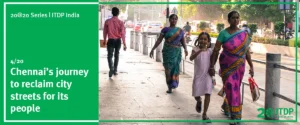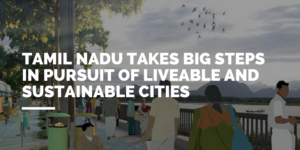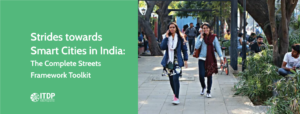
Written by AV Venugopal Edited by Kashmira Dubash
The French philosopher and sociologist Henri Lefebvre interpreted space as an entity that is not static, but one that is alive and dynamically shaped through the interaction of people with it. He stressed on the importance of the production of space through these social relations over merely treating space as an object. We, however, live in a world which largely follows the technocratic planning principles for managing these spaces, rather than embracing the relations that form them.
Written by AV Venugopal Edited by Kashmira Dubash
Through understanding the relationship between people and their surrounding environment inherent to every space, the cities can ensure a demand-driven approach to solution making, where decisions are largely tailor-made than mass produced to the context. This will ensure a multidisciplinary approach to solution making, where there is open knowledge sharing and a collaborative work of different stakeholders. An intervention will thus have more credibility when it is shaped through a participatory approach involving all participants who have a stake in it.
The case of transformation along Sringeri Mutt Road
An interesting example of how the participatory deliberation of the people can shape spaces they live in was observed in the case of the tactical urbanism intervention along the Sringeri Mutt Road, facilitated by ITDP India Programme in Chennai. The quick and cost-effective initiative that was largely community driven, was aimed at enhancing the road and personal safety of the neighborhood, primarily women and children.

Deepening Democracy: Innovations in Empowered Participatory Governance by A. Fung and O. Wright highlights three key principles of Empowered Deliberative Democracy which seem to be strongly embraced in this case.
The first principle speaks of ‘practical orientation’ of having a specific focus on tangible problems, which helps solve it through the next two principles. With abandoned vehicles and unauthorized parking lining the stretch along the canal, the dead spaces had become a breeding hub for anti-social activities. The tangible problems in this case were identified as the need to enhance road and personal safety for the street users in the neighborhood.
The second principle is about ‘bottom up participation’ which calls for including people directly affected by the problems, to serve as a channel for experts and citizens to work together. The direct involvement helps in increasing efficiency, trust, and accountability. The ITDP India Programme was able to measure the root cause of the concerns through initiating dialogues with the different stakeholders in the neighborhood. Those who faced the brunt were frequent users of the street, which were the local residents and the students and teachers of the neighboring school. The different layers of the problem were gradually unwrapped through site visits and discussions with these users

The neighboring school
The neighboring school
The third principle on ‘deliberative solution generation’ involves joint planning and problem solving through a process of deliberation. The participants hear out each other’s concerns and work together towards developing a solution through discussions than heated arguments.The fresh lease of life that the space witnessed was due to the efforts of the Chennai Traffic Police, Greater Chennai Corporation, civic action groups like Thiruveedhi Amman Koil Street Residents Association (TAKSRA) and Karam Korpom, Chennai High School (Mandaveli) and the ITDP India Programme.

Sketch by the author on the case of Sringeri Mutt Road based on the principles of Empowered Deliberative Democracy
This case showed alternate approaches to transformations that a city can witness, where deciphering the needs and solutions is a joint process with the people involved, than a top-down approach.
Moving towards a systemic change
The intervention on the ground, its success and the interest it has lit amongst the city officials to scale- up, draws parallels to stage model of social innovation discussed by Robin Murray, Geoff Mulgan and Julie Grice.

Moving towards a systemic change
Moving towards a systemic change
The tactical urbanism solution as a prototype addressed the poor social conditions that prevailed. The smiles that it achieved in bringing to the faces of the children and other users have reflected the triumph of the approach and the city is pushing towards scaling up these quick, low cost and community driven interventions to other areas.
Pugalis and Giddings in their work on ‘The renewed right to urban life’ extends on the Lefebvrian philosophy which values the coproduction of space. They bring up the concept and importance of ‘little victories’, small wins that add up to create strong ripples capable of bringing a systemic change. A systemic change involves the gradual reshaping of mindsets that have been accustomed to a set machinery and distribution of power. These steps to scale up the interventions, however reflect the possibility of bringing a systemic change that values the collaborative approach to decision making, by prioritizing the needs of the most vulnerable users. The interest of the city to facilitate this decentralized approach, indirectly shapes this into a coordinated decentralized system, taking the best of both systems.
As a country that has shaped through over seventy years of democratic politics, there is an inherent need to see citizenship as something that is as dynamic as a space itself. Urbanist Luigi Maza speaks of the dual nature of citizenship, one that is not just a bundle of rights and obligations, but a dynamic social process of the citizens contributing to the production of spaces, redesigning its rules and obligations. As the city adopts new ways of decision making, the citizens also have to start thinking outside the walls of the homes they have built and see the entire city as their home and contribute towards improving it. After all, as Jane Jacobs rightly put it, ‘Cities have the capability of providing something for everybody, only because, and only when, they are created by everybody’.
Recent Blogs


Tamil Nadu taking giant strides in pursuit of liveable sustainable cities

